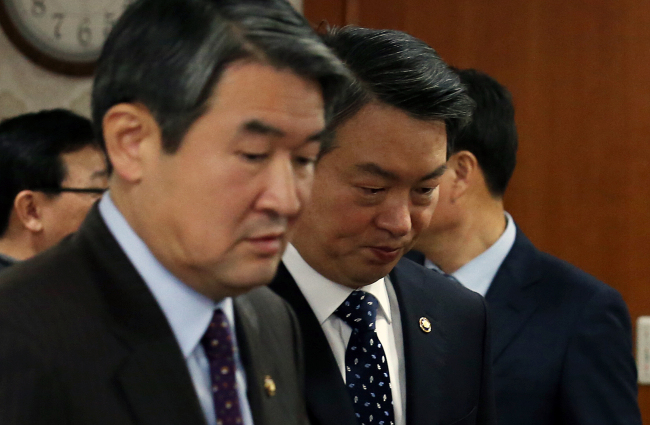Korea, U.S. strive to contain fallout of attack on Lippert
By KH디지털2Published : March 5, 2015 - 16:55
Seoul and Washington are striving to minimize the fallout from a knife attack against the U.S. ambassador here which triggered concerns that it may dampen public sentiment and set hurdles for the allies’ future cooperation.
The shock assault came amid rising signs of a rift between the two countries over policies regarding North Korea and Japan. It added to an uproar in Korea after U.S. Undersecretary of State for Political Affairs Wendy Sherman put a veiled blame on Seoul and Beijing for exploiting “nationalist feelings” toward Tokyo for domestic interests over wartime history.
The two countries immediately mobilized diplomatic channels at various levels to coordinate their response. They agreed to cooperate closely to prevent the incident from causing any negative impact on bilateral ties, a Foreign Ministry official said.

“We concurred that this case should not turn into an unnecessary political issue and spark a negative effect on the alliance especially in the wake of Sherman’s remarks,” the official told reporters on customary condition of anonymity.
“We would have similar concerns if the same thing happened to us in the U.S. … . We will strive to keep any misunderstandings or negative perceptions from spreading through public diplomacy events or other occasions.”
Ed Dong, minister-counselor in charge of political affairs at the U.S. Embassy here, called the attack an “isolated incident” and expressed gratitude for Seoul’s efforts during consultations with Shin Chae-hyun, director-general for North American affairs, the official added.
Given the robustness and 60-year history of the alliance, the incident is unlikely to have major repercussions, officials and experts say. But they worry that its ruthlessness and the fact that it occurred on the soil of one of the U.S.’ core regional partners could dent the image of South Korea and the alliance, which may complicate their future cooperation.
The attack also divulged a deep-rooted political divide chiefly stemming from a separated peninsula. The perpetrator, a notorious ultraleft activist, was screaming demands for a reunification and end to South Korea-U.S. military drills when he rushed to and assaulted Ambassador Mark Lippert.
“It would have little impact on the bilateral relationship if he was acting alone without any organizational support,” said Yun Duk-min, chancellor of the state-run Korea National Diplomatic Academy.
“But as he raised the issue of military exercises, the impression or image of Korea, as well as the public view that the country is safe, could take heat.”
Lippert, for his part, may see his public diplomacy activities limited as the embassy strengthens his security. Since his arrival in October, he has been extensively reaching out to the public. He often goes to work on foot, introduces his dog to passersby in the public, dines at local Korean restaurants and shares his activities on Twitter.
With South Korea and Japan waging a diplomatic battle in the U.S. over history, the incident may limit Seoul’s say and heap pressure on the country to make concessions on sensitive issues, others say.
Though Washington quickly attempted to downplay her intentions, Sherman’s remarks triggered tension and concerns that Tokyo could now spur its ongoing revisionist push without feeling much pressure to apologize for sex slavery and other atrocities during World War II.
“The government will have to bear a greater burden in relations with the U.S. as the attack could undermine its positive sentiment toward South Korea,” said Hong Hyun-ik, a fellow at the Sejong Institute. “Seoul is now in a more difficult position in terms of the trilateral relationship with Washington and Tokyo.”
By Shin Hyon-hee (heeshin@heraldcorp.com)


















![[Today’s K-pop] Treasure to publish magazine for debut anniversary](http://res.heraldm.com/phpwas/restmb_idxmake.php?idx=642&simg=/content/image/2024/07/26/20240726050551_0.jpg&u=)